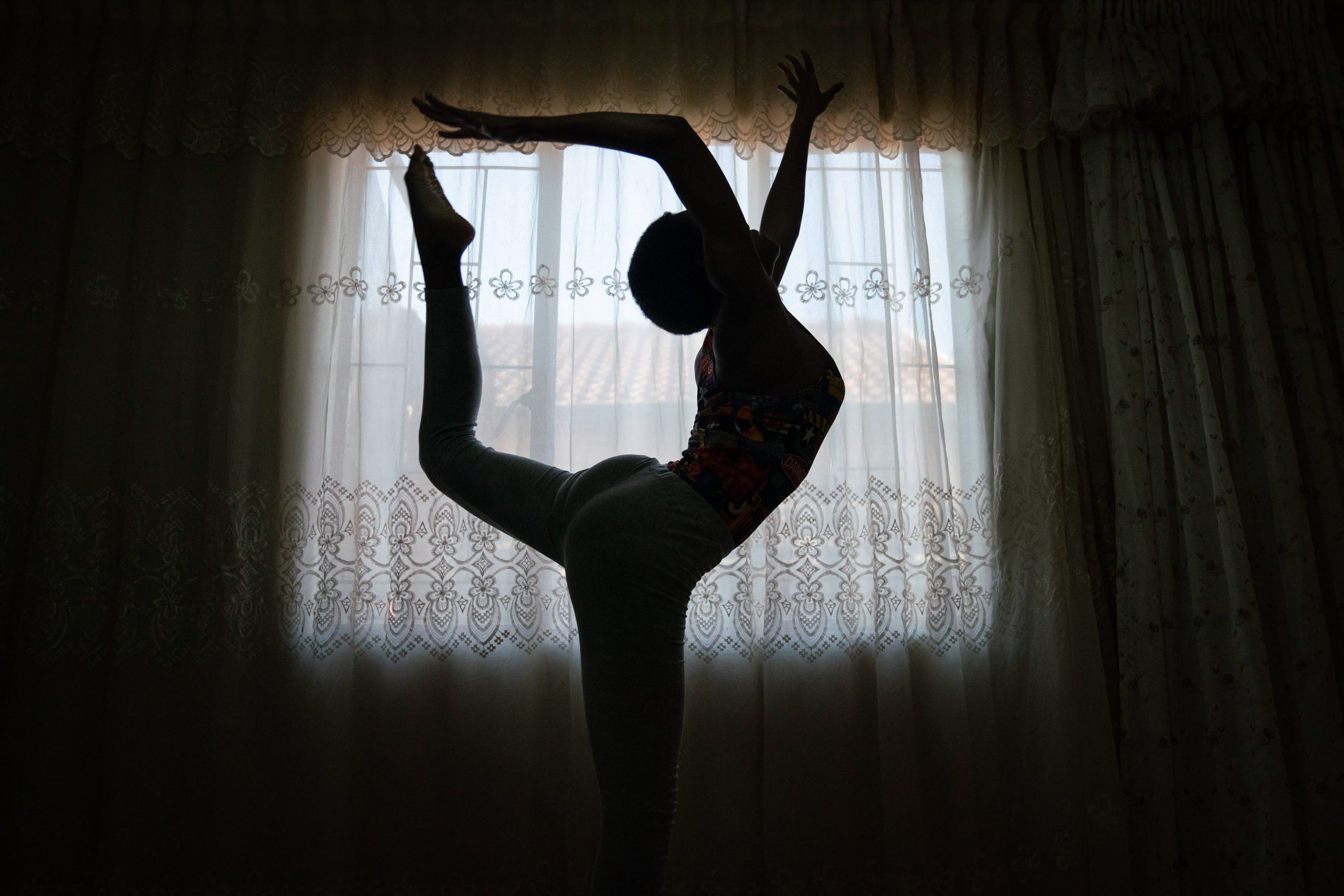Young gymnast hampered by lack of facilities
Orapeleng Vivian has the talent, but a lack of training facilities, coaches and sponsorship is impeding her dream of competing internationally.
Author:
19 July 2019

Dancing and twirling in her lounge in Mabopane, Tshwane, 13-year-old Orapeleng Vivian says, “I do gymnastics because it makes me happy.” Orapeleng is shy. She barely speaks above a whisper. But when this soft-spoken gymnast starts to perform, her entire demeanour changes. She is commanding and in control as she leaps across the space. “I love dancing. It inspires me.”
This year, Orapeleng won a gold medal at Gymnastic Aerobics Sport level 2 at the 2019 Arnold Classic Africa competition. This is the second time she has won gold, the other was for Gauteng School Games level 3 in aerobic gymnastics. Recently, she also won sportsperson of the year at her former school, Ikeleng Primary School. Orapeleng is interested in aerobic, artistic, acrobat and trampoline gymnastics.
But Orapeleng’s dream of “competing in other countries” is restricted by the lack of sports facilities in her area and at her school. In grade 8, Orapeleng still practices at her primary school, where a teacher supervises her. “We practice in our class. We use chairs and desks,” she says. “It is dangerous.” But in spite of not having the right equipment, she continues to train. Orapeleng watches YouTube videos of her role model, American contortionist and gymnast Sofie Dossi, to teach herself during her home practice sessions.

Sports and recreational facilities are part of how the South African Schools Act defines what a school is under its Minimum Uniform Norms and Standards for Public School Infrastructure requirement.
Equal Education Law Centre executive director Nurina Ally says norms and standards for school infrastructure are important as this is a binding law that provides certain standards by which learners, educators, parents and the broader public can hold government accountable. The norms and standards establish the minimum requirement of school infrastructure that government should be fulfilling.
“Access to good quality and suitable physical education, sporting and recreational facilities is a component of the right to basic education and crucial to the holistic development of children,” Ally says.
The Gauteng Department of Education failed to respond to the questions sent to them.

No. 1 supporter
Orapeleng’s biggest supporter is her mother, Itumeleng Vivian, 37. “It is hard as a mother seeing your daughter with such talent and not able to take it further,” she says. But despite the hardships, Vivian has high hopes for her daughter, who can also sing. “She takes after me,” she says, laughing.
Orapeleng’s mother, who is unemployed, says she hopes her daughter gets a subsidy to help her get into a better school that offers different sporting options, so she can fulfil her dreams.
Grandmother Salome Vivian, 62, gushes over her gymnast grandchild: “Watching her play, I become so happy. I become proud. I wish the Lord can help her pursue her dreams. I want her to get a sponsorship because we don’t have money.”
Orapeleng also practices at home and now takes full advantage of the empty lounge as their couches are in for repairs.
Vivian talks about the limits imposed by the lack of sports facilities. “She is unable to do things that she wants, like being an acrobat and excelling in what she does to move to the next level, since they lack facilities and this limits our kids.”
“I need a club where I can practice,” says Orapeleng. “I also need a coach. And sponsorship.”

